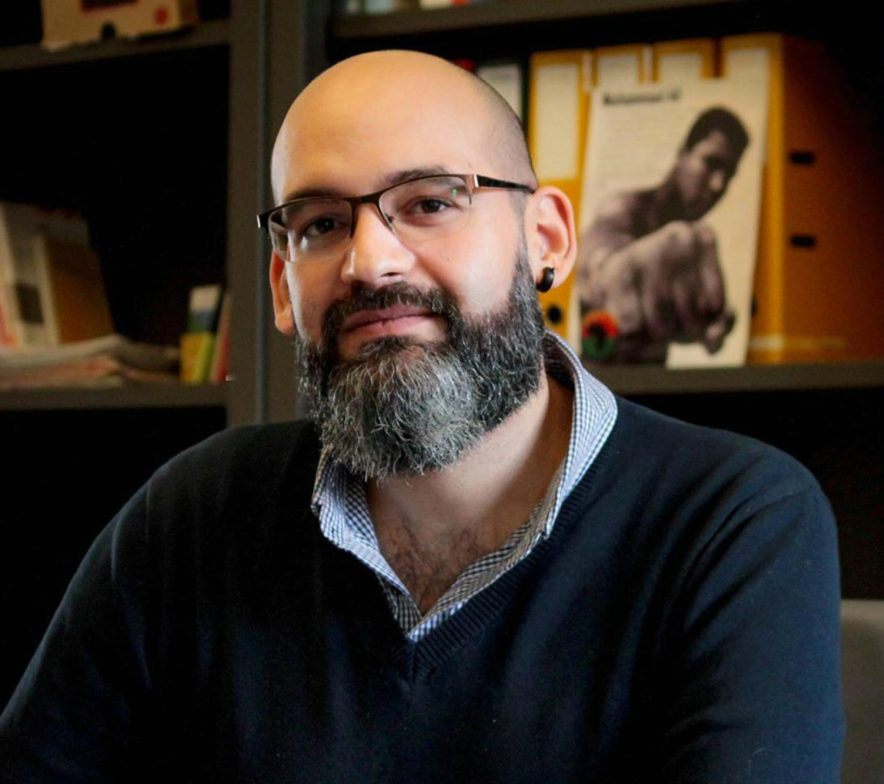Cayetano Fernández is co-founder of the anti-racist collective ”Kale Amenge”, an autonomous Roma political initiative in Spain that over the last decade has focused its work on the self-organization of the Roma people as a political subject and on the critical production of political-theoretical tools aimed at the collective Roma emancipation. His research focus is on the epistemological (re)production of anti-Roma racism in the academic field of Romani Studies. Mr Fernandez has co-edited the book ”State Racism. A collective overview from the perspective of autonomy and racial justice” (Txalaparta, 2023), and several articles, such as “Anti-Roma racism and the white academic agenda”, “Tasks, disputes and challenges of Roma political anti-racism”, “The Roma Collective Memory and the Epistemological Limits of Western Historiography” and “Anti-Roma racism, social work and the white civilizing mission”. Cayetano Fernández is currently a PhD candidate at the University of Coimbra, Portugal.
I do not think we are facing a crisis of Roma political representation at the EU level, as there has never been an autonomously legitimized Roma voice in the history of the European Parliament. There have been some of our people holding positions, here and there, but they have always been involved in gadze parties and selected by them, meaning they were subordinated to them. There has not been any political autonomous representation defending Roma interests and being accountable to the Roma nation. I imagine that the brothers and sisters who have played roles there did so with the best of intentions. However, in such an imbalanced situation of power and based on the results, we can conclude that this kind of ‘participation’, subordinated to gadze political initiatives, has been quite limited and, in some cases, even used to implement an anti-Roma political agenda. Let’s not forget the role played by Livia Jaroka as vice-president of the European Parliament under the orders of Fidesz, Viktor Orban’s party.
I think this is a moment not only to ask ourselves why there is no Roma political representation in Brussels but also to critically analyze what the previous representation meant for Roma political interests and to demand political accountability. In recent months, we have witnessed several reactions from NGOs and organizations about the lack of Roma MPs in the current parliament. However, I cannot see the same interest in addressing the broader issue: the legitimacy of the system that selects and decides which voices and demands are acceptable, and the true meaning of the political representation we have had so far.
To conclude, I would say that I do not consider the current Parliament, empty of Roma voices, as an anomaly or ‘system failure’, but rather as the true face of a racialized political system functioning as it always has, achieving its interests and commitment to gadze supremacy beyond fancy slogans and aesthetic claims about diversity and inclusion. As I have expressed many times, there is no Roma political participation worthy of that name that does not begin with an exercise of autonomy and independence from gadze institutions. In this sense, I still think that the current political scenario could be turned into a potential opportunity for the so-called Roma movement to finally react, to understand that the political emancipation our nation demands will never be achieved by collaborating with the institutions of our oppressors, and even less by wishing to be ‘integrated’ into their gadze structures. I believe it is time to urgently start building a collective political strategy that aligns with the interests of our Roma nation and break with subordination, integrationism and political dependency before it is too late.
![]()
Discover more from EU Romapress
Subscribe to get the latest posts sent to your email.


